Since the Russian war against Ukraine began in 2014, leading to its full-scale invasion in 2022, 28 journalists and media workers have been killed while reporting on the war, according to the Committee to Protect Journalists (CPJ).
The most recent tragedy occurred in August 2024, when a Russian missile strike on a hotel in Kramatorsk killed Ryan Evans, a veteran Reuters safety adviser and father of four. Two other journalists, including Reuters cameraman Ivan Lyubysh-Kirdey, were seriously injured as a result of a Russian attack, while others escaped with minor or no visible injury.
For Katerina Sergatskova, co-founder of the 2402 Foundation, this tragedy underscores the immense risks journalists face. Sergatskova, a reporter in exile, was forced to flee Russia in 2008 after serving as the editor-in-chief of a newspaper that reported on human rights issues and was critical of the Kremlin. While reporting on the Crimean War, she met Roman Stepanovych, a local journalist from Donbas, and they learned hard lessons about reporting in war zones.
“This work, it’s something we know is important. But we have to think about our own safety. Our well-being. And there have been so many lost already,” Sergatsokova said in an interview with E&P just weeks after Evan’s killing.
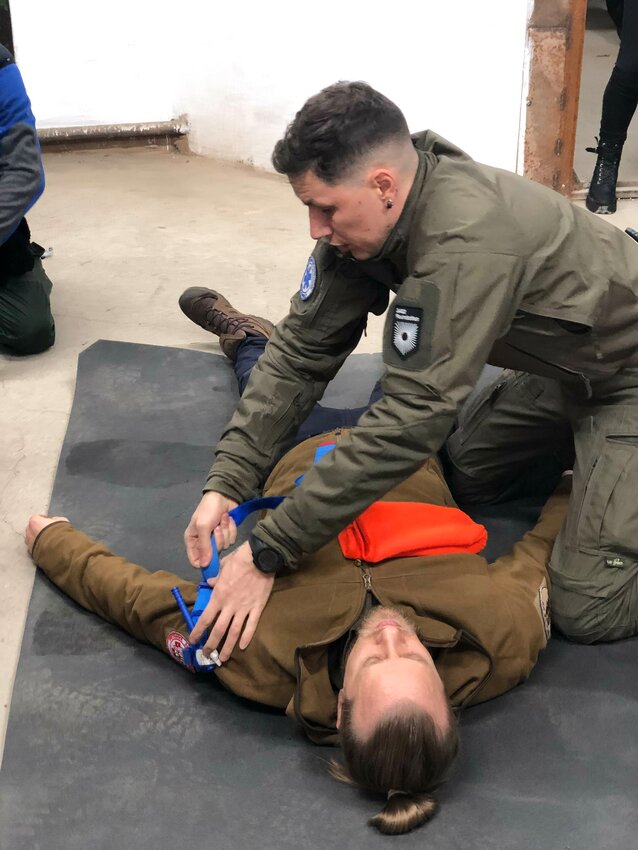
As the invasion of Ukraine began in 2022, Sergatskova and Stepanovych recognized a profound need to share their knowledge about mitigating risks while reporting in war zones with local journalists. They founded the 2402 Foundation, which they now run from Denmark, to help fellow journalists operate safely by providing safety equipment and hostile environment and first aid training (HEFAT).
Since its inception, the 2402 Foundation has also provided life-saving equipment and training to journalists covering the war. Over 400 vests, 600 medical kits and countless helmets have been distributed to Ukrainian newsrooms. Over 1,000 journalists have completed safety training covering first aid, risk assessment and survival skills for war zones.
Sergatskova emphasizes that this training must be ongoing. Many journalists are hesitant to devote time to it, believing they already know how to protect themselves. “They are so focused on the reporting, and this training, which takes days, can seem like it’s getting in their way of doing their jobs,” she says. Convincing them to prioritize their safety is challenging, but Sergatskova is firm, “It can save their lives.”
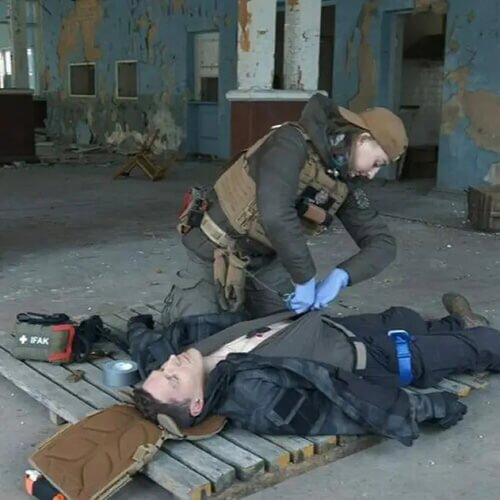
The Foundation’s training sessions in Ukraine include real-life simulations, teaching participants how to stop bleeding, apply a tourniquet and communicate during a crisis. “For the tourniquet, making a bandage, how to deal with blood ... they face it in real life,” Sergatskova explains. The hands-on approach is critical to building what she calls “muscle memory,” so that journalists can react effectively when under fire.
2402 has used virtual reality (VR) training as part of its programming to help journalists simulate real-world events and to help them pre-think responses to likely events they could encounter in the field. “This is so important because you need to develop instinctual responses,” said Sergatskova.
Sergatskova sees a growing need for journalists in Ukraine and beyond to get this critical support. The 2402 are looking to expand their work of addressing the physical dangers and psychological trauma faced by those covering conflict worldwide. They are looking to expand the scope of their program and bring it to a broader community.
Next stage work
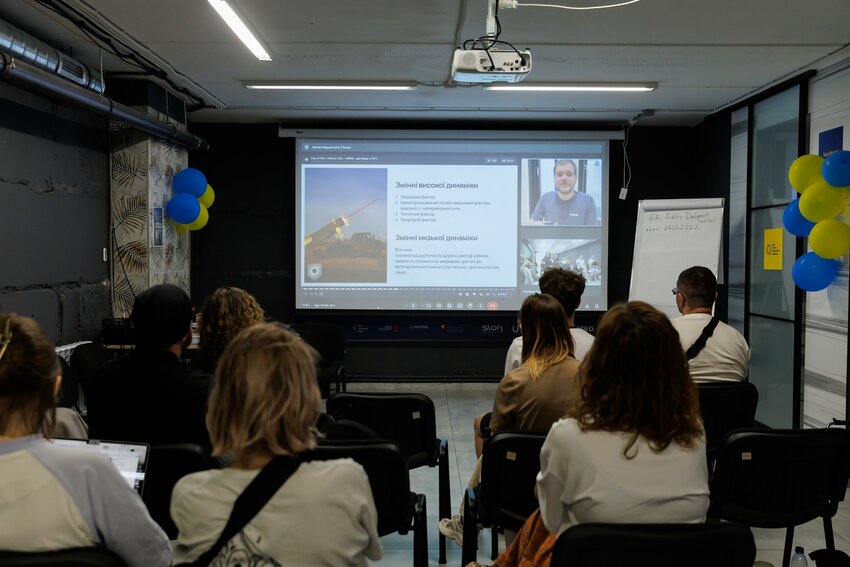
Initially dedicated to distributing safety equipment such as flak vests, helmets and medical kits, the Foundation is now shifting its focus toward mental health support. The prolonged nature of the war, coupled with the intense emotional demands of frontline reporting, has made mental health a pressing issue for journalists.
“This prolonged stress — years and years of doing this kind of reporting — it's grim,” Sergatskova says. Many journalists, she notes, lack the proper tools, cultural awareness or access to professional help to cope with this type of stress.
Research from the Dart Center for Journalism and Trauma indicates that 80% to 100% of journalists have been exposed to work-related traumatic events. And many experience repeated exposure, with 92% of journalists reporting experiencing at least four traumatic situations.
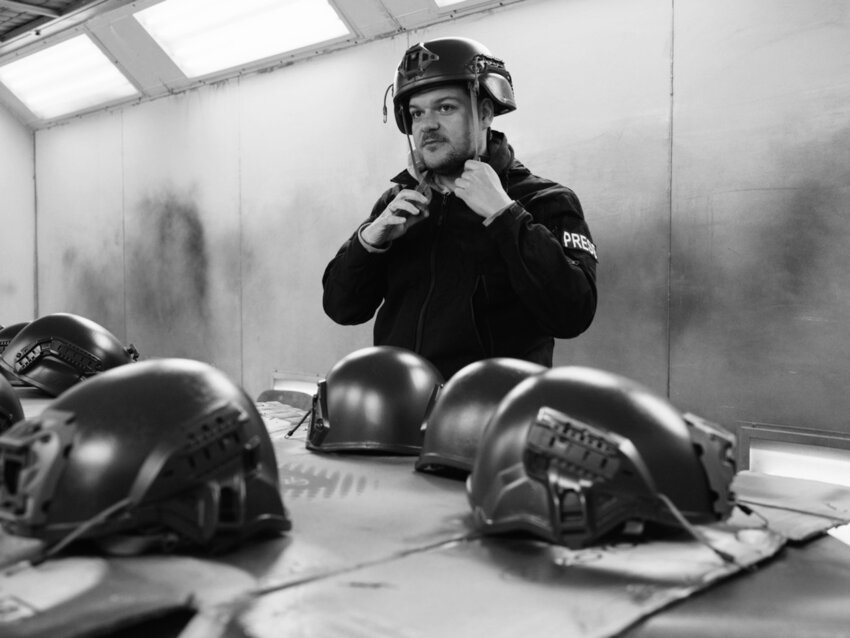
In response, the Foundation is developing a comprehensive mental resilience program to launch in early 2025. The program will include workshops, group training and even a virtual reality (VR) component to help journalists build resiliency skills and manage the stress that results from facing constant high-pressure environments. The 2402 Foundation has already started conducting research, including a national survey, to better understand how Ukrainian journalists are coping with the psychological impact of the war.
“Every safety training we do — everyone asks about mental health support,” Sergatskova points out. International organizations like the Dart Center, the Rory Peck Trust and Reporters Without Borders offer links to mental health support.
Sergatskova believes the solutions lie not just in therapy but also in giving journalists practical tools to manage stress daily, and she wants to integrate that into their other training protocols. She said the training program they are developing will be geared toward helping people build resilience to cope with trauma, “Most people ... need to understand what’s happening, how they can reduce the stress [and] techniques to help themselves,” she explained.
Lessons for newsroom leaders
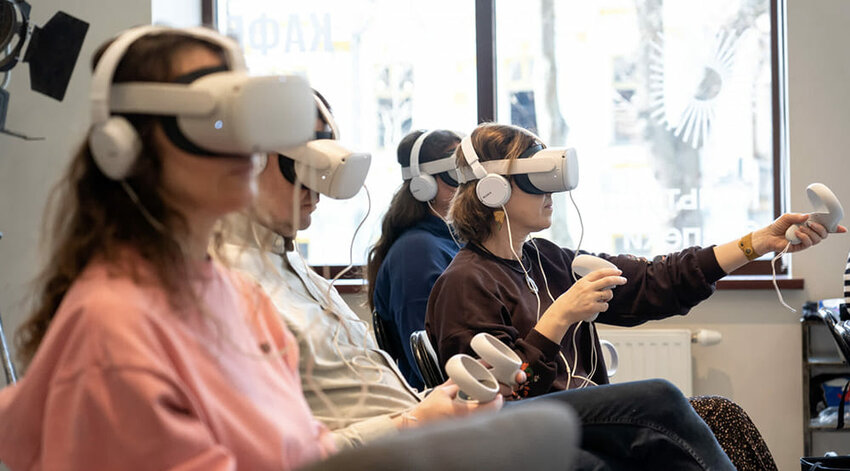
Sergatskova also emphasized the crucial role that newsroom managers and editors play in ensuring their journalists' safety and mental well-being. Often, the reporters in the field recognize the importance of safety and mental health training, while newsroom leadership remains less engaged.
“It’s much harder with management than people in the field who understand the value,” she said. Sergatskova believes that training editors and managers in risk assessment and mental health awareness is critical to fostering a culture of safety within news organizations.
By providing proper guidance on how to conduct risk assessments and prioritizing mental health, managers can help their teams not only navigate dangerous reporting environments but also cope with the prolonged stress that comes with conflict coverage. This holistic approach can improve overall newsroom operations and ensure journalists are better equipped physically and mentally to continue their work.
“There is such a stigma about mental health here. If managers aren’t talking about the issues, reporters don’t think they can,” she says. “Editors need to encourage discussions about risks or the pain and stress from the work. Without that leadership — the honest discussions — it leaves people on their own.”
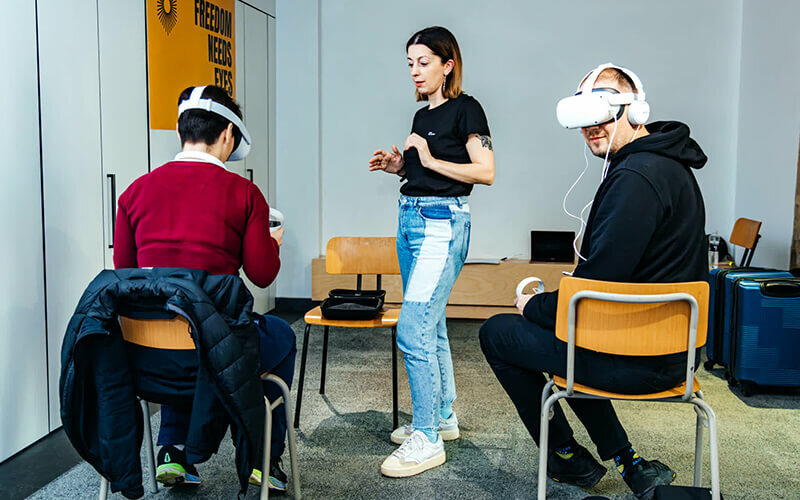
Despite their essential work, the 2402 Foundation faces persistent funding challenges. The cost of providing safety equipment like flak vests and medical kits has risen, and many donors have exhausted their budgets for such purposes. “Believe it or not, it’s really hard to find funding for that,” Sergatskova acknowledged, adding that many funding sources “ran out” or funders have closed their programs.
In addition to its work in Ukraine, the 2402 Foundation plans to expand its safety and mental health initiatives globally. Upcoming projects include training journalists in conflict areas of Lebanon and countries in Africa and Eastern Europe where journalists are at risk.
Sergatskova stresses the importance of collaborating with local experts to tailor the programs to the unique needs of each region. “You need to work with the local community on their needs. We need people,” she said, emphasizing the importance of local input in making the programs effective.
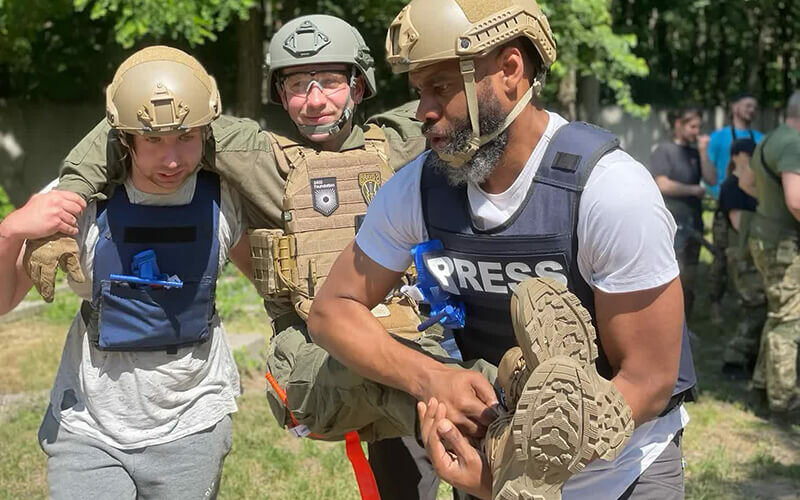
As the 2402 Foundation expands its work in safety and mental health, it is helping to ensure that journalists in Ukraine and beyond have the tools they need — not only to survive but to continue telling the critical stories that the world needs to hear.
For Sergatskova, this mission is personal and urgent. “We’ve made significant progress, but there’s still so much to do. In a world filled with conflict, reporters must have the tools to protect themselves and continue telling the stories that matter,” she said. “This work is vital for today and for the future of journalism worldwide.”
Note: October is International Mental Health Month. The free Mental Health in Journalism Summit will be held online Oct. 9-11. A first-of-its-kind event, the Summit is designed for managers, editors, reporters, freelancers and anyone working in the media industry, as well as those in academic institutions, journalism unions and associations. Learn more at https://theselfinvestigation.com/summit/
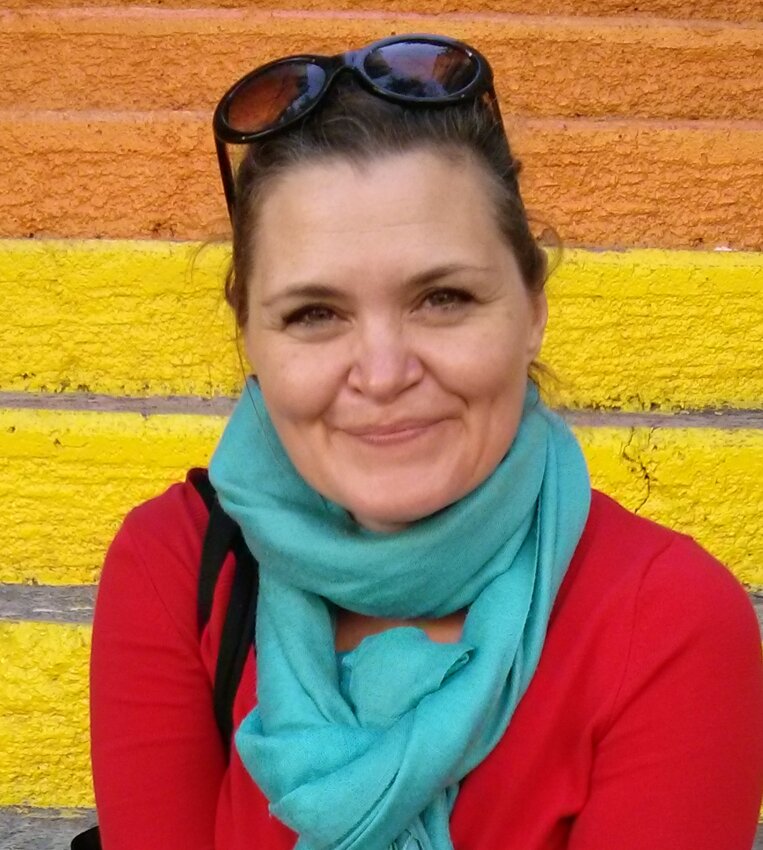 Diane Sylvester is an award-winning 30-year multimedia news veteran. She works as a reporter, editor, and newsroom strategist. She can be reached at diane.povcreative@gmail.com.
Diane Sylvester is an award-winning 30-year multimedia news veteran. She works as a reporter, editor, and newsroom strategist. She can be reached at diane.povcreative@gmail.com.
Comments
No comments on this item Please log in to comment by clicking here